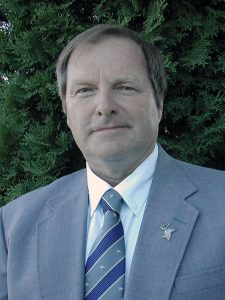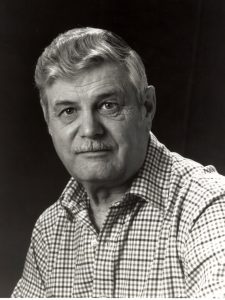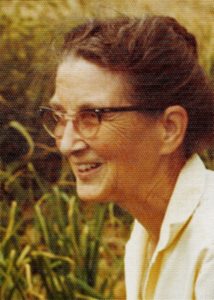WCHF Announces 2019 Inductees
Scott Craven, Don L Johnson, and Aroline Schmitt
The Wisconsin Conservation Hall of Fame Foundation (WCHF) has announced the selection of three conservation leaders for induction on April 13, 2019 at 2:00 p.m. at the SentryWorld (the Atrium) in Stevens Point. The public is invited.
A coffee reception will be held at 12:30 p.m. prior to the Induction Ceremony on Saturday, April 13th at SentryWorld in Stevens Point. Following the ceremony, there will be a luncheon at 4:30 p.m. at SentryWorld (the Atrium). The Induction Ceremony and Coffee Reception are free.
Reservations for lunch ($25 per person) may be made online or by calling Schmeeckle Reserve at 715-346-4992.
All activities are open to the public.
Saturday, April 13, 2019
SentryWorld (the Atrium) in Stevens Point
Program:
12:30 p.m. Coffee Reception (free)
2:00 p.m. Induction Ceremony (free)
4:30 p.m. Luncheon – ($25/person)
The inductees this year include Scott Craven, a well-known UW-Madison Wildlife Professor who advanced the public’s understanding an appreciation for Wisconsin’s wildlife and natural resources through his Public Radio Programs; Don L Johnson, a popular wildlife newspaper columnist for the Milwaukee Sentinel; and Aroline Schmitt, a pioneering woman and citizen conservationist who worked to advance sustainable forestry.
Scott Craven (1948 – )
Scott Craven is an ambassador for Wisconsin’s wildlife, with a gift of sharing his knowledge and enthusiasm for Wisconsin’s natural resources. As a popular UW- Madison Wildlife Professor, he reached thousands through his UW-Extension presentations, publications, and programs on wildlife, natural resources, and the land ethic.
He also found a niche in public education through public radio and other prominent media outlets. As a gifted speaker, he has a unique way of captivating his audience with facts, stories and humor. He has helped educate the public on how to attract wildlife and how to thoughtfully deal with nuisance wildlife and wildlife damage. Scott also provided service and leadership to hundreds of agencies and organizations, and to thousands of private home and land owners, through his selfless contributions of time and effort.
His time in Wisconsin started in 1972 as a graduate student at the University of Wisconsin-Madison in the Department of Wildlife Ecology, continuing for more than 40 years as a Professor, Extension Wildlife Specialist, and Department Chair. He was an advisor and mentor to hundreds of undergraduate and graduate students through classes, internships and independent study projects. He also advanced youth education in Wisconsin through his 4-H leadership efforts and hunter education progr
Scott Craven has been one of the most influential conservation educators in Wisconsin in the last half century. Since his retirement Scott has continued to be a committed conservationist and prolific ambassador for wildlife. He is known and respected in virtually every corner of the state and has received numerous awards for his contributions to conservation from many organizations, agencies, and universities including The Wildlife Society, UW- Madison and UW-Extension, Wisconsin 4-H, USDA -Wildlife Services, and the Wildlife Management Institute.
Don L. Johnson (1927 – 2006)
For a period spanning more than four decades, Don L. Johnson was one of Wisconsin’s best-known outdoor writers and columnists. He wrote extensively about hunting and fishing in Wisconsin, first for the Eau Claire Leader and Telegram and then for the Milwaukee Sentinel. But he also tackled complex public policy issues affecting the state’s natural resources including wildlife management, preservation of wildlands, and the regulation of environmental pollution. He became a major educator of the public during a critical period in the development of conservation advocacy and government regulatory policy.
Johnson was a pioneer in environmental journalism, responsible for groundbreaking and influential reporting on issues as diverse as environmental contamination by DDT and other chlorinated hydrocarbons, mercury pollution in state waterways, and harm done to waterfowl by use of lead shot. Don’s reporting contributed to positive changes in public policy, with longer-term benefits to Wisconsin’s natural heritage.
With a love of nature and conservation, Don Johnson received his degree in journalism and biology in 1951 from the University of Wisconsin-Madison. In addition to his work with newspapers, Johnson was widely published as a freelance writer in many outdoor-oriented publications. He wrote a series of short nature essays in the Sentinel which were published in book form in 2005 as Summer’s Song and Other Essays.
In addition to his journalism, he was an avid outdoorsman and was involved in public education pertaining to outdoor-related activities, promoted a wide-variety of outdoor sports, conducted workshops and clinics, and helped design the state’s first hunter-safety program. Through his writings and service, he also advanced the efforts and mission of many conservation-oriented organizations, including the Wisconsin Conservation Hall of Fame.
For his service and exemplary writing, he received many honors from conservation, environmental and outdoor organizations, including the Gordon MacQuarrie Award, and other awards from the Wisconsin Wildlife Federation, the Wisconsin Natural Resources Board, the EPA, and the Outdoor Writers Association of America.
Aroline Schmitt (1904 – 1995)
Aroline Schmitt is a good example of how women have been instrumental in leading citizen conservation crusades in Wisconsin and the nation. During the 1940 to the 1960’s, she advanced the principles and practice of sustainable forestry, organized and led new conservation organizations, and worked hand in hand with many other conservation leaders. Despite health challenges, she fought with tenacity and charisma to advance major conservation policies affecting Wisconsin’s natural heritage.
She became a passionate champion for “Forest Conservation” at both the State and national level. Trained as a nurse, she began her conservation work during World War II in what was then a man’s world, surveying and cruising timber lands for the US Forest Service in Alaska and the west. She continued in various roles with the Forest Service until 1961. She promoted the principles of sustainable forestry and timber management, before the practice was known by that name. She always prodded politicians, conservationists and industrial foresters to adopt good forestry practices. Working with Gifford Pinchot (former Director of the U.S. Forest Service) and others, she also helped establish and led a national conservation organization called “Forests.”
Her Wisconsin conservation efforts occurred from the 1930s to the 1960s. A frequent speaker and advocate for strong resource policy, she was a prolific letter writer and traveled the state to participant in important meetings and legislative hearings. She worked arm-in-arm with conservation luminaries including Aldo Leopold, William Aberg, and Wilhelmine La Budde. She also helped to organize and lead the Citizens Natural Resources Association and the conservation programs of the Wisconsin Garden Club Federation.
She also played a pivotal role in protecting the Flambeau State Forest, the Menominee Tribal Forest, and the creation of Trees for Tomorrow and the Northern Forest Research Center. She was recognized for her exemplary conservation work by the Citizens Natural Resources Association (Silver Acorn Award, 1961), the Wisconsin Garden Club Federation (1956), and the Izaak Walton League (Broughton Award, 1950).
For many years, due to persistent health problems, she fought her conservation battles from her bed and home office. With tenacity and dedication, she continued to influence conservation policy through her telephone calls, writings, and personal charisma.
The Wisconsin Conservation Hall of Fame
The Wisconsin Conservation Hall of Fame and Visitor Center, located at Schmeeckle Reserve in Stevens Point, was established in 1985 to advance the conservation legacy of Wisconsin and now recognizes 88 leaders who have contributed significantly to it. WCHF is a cooperative venture of 32 State-wide conservation organizations. Individuals may be nominated for induction by member organizations or by the public. Based on a set of criteria, nominees are selected for induction by the WCHF Board of Directors and an independent Board of Governors.



